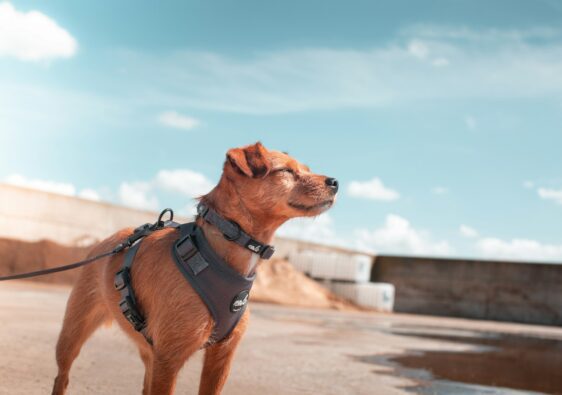There are approximately 5,000 animal rabies cases in the United States each year. While most occur in wildlife, they can affect domestic animals as well.
Take dogs, for example, they can contract rabies if they’re bitten by a rabid animal or get into contact with their saliva. What’s worse, is that they can transmit it to humans.
Fortunately, it’s all preventable with vaccinations.
Did you recently get a puppy? Want to learn more about rabies vaccinations? If so, you’re at the right place. Keep reading for everything that you need to know!
What Is the Rabies Vaccine?
The canine rabies vaccine is given to healthy dogs to prevent rabies (as opposed to the human rabies vaccine, which is given after a potential exposure).
As with the human vaccine, it contains inactivated pieces of the rabies virus. Once injected into the dog, their immune system will recognize the viral material as foreign; this will trigger the production of antibodies.
These antibodies will circulate throughout the body for a period of time so that if the dog becomes exposed to rabies, the immune system will have the necessary antibodies to fight off the infection. That way, they won’t become ill.
Rabies Vaccinations Schedule
Puppy vaccinations can be given when they are as young as 12 weeks old—this includes the rabies vaccine.
Generally speaking, they’ll receive their first rabies shot between the ages of 12 to 16 weeks. A rabies vaccine booster will then be given one year after the first dose. From there, they’ll need a booster every three years.
Note: Vaccinated dogs will also have to wear rabies tags, which will act as proof of vaccination.
How Much Do Puppy Shots Cost?
You can expect to pay between $100 and $350 for the core vaccines (protects against distemper, parvo, hepatitis, parainfluenza, and leptospirosis).
The rabies vaccine will be an additional cost, usually between $15 and $35. At the end of the day, it depends on various factors such as your geographical location as well as the veterinary practice.
For those who are on a budget, consider visiting a low-cost vaccine clinic at a shelter. Some mobile clinics may also offer low-cost options.
Side Effects of the Canine Rabies Vaccine
The rabies vaccine can cause various side effects. However, most are mild and will go away within a day.
For example, it can cause loss of energy, loss of appetite, and soreness at the site of injection. In some cases, it can also cause a temporary fever.
Contact your veterinarian right away if your puppy develops hives or has difficulty breathing, facial swelling, or persistent diarrhea; they may be having a vaccine reaction, which requires prompt veterinary care.
Understanding Rabies Vaccination of Dogs
Rabies vaccinations are essential in preventing rabies in dogs. If anything, it’s one of the most important things that you can do to ensure that your pet remains happy and healthy.
Did you enjoy this post? If so, you’ll be happy to know that we have more articles like this in our pet section. Check it out today!



